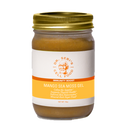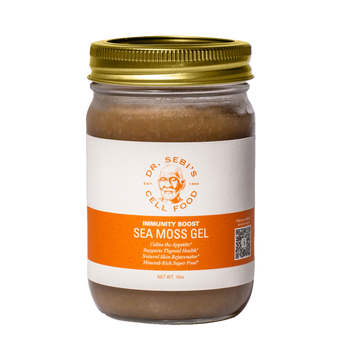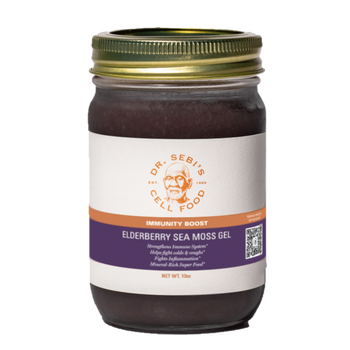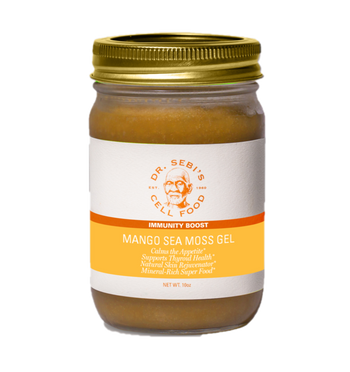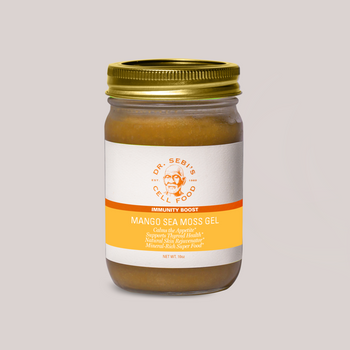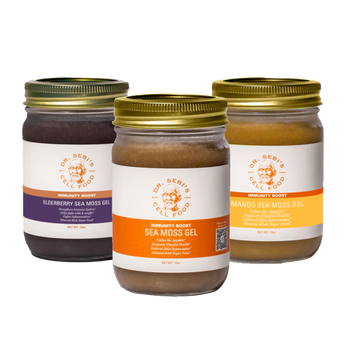Benefits of Sea Moss
Sea moss, also known as Irish moss, is a nutrient-rich seaweed that has gained popularity for its numerous health benefits. One of its most notable advantages is its potential to help manage cholesterol levels. Sea moss is rich in soluble fiber, which can help lower LDL (bad) cholesterol and raise HDL (good) cholesterol. Additionally, it contains essential fatty acids that can support heart health.
How to Use
Incorporating sea moss into your diet is simple. You can consume it in several forms: as a gel, powder, or capsules. Sea moss gel can be added to smoothies, soups, or sauces. If you prefer a powdered form, you can mix it into your drinks or sprinkle it on your meals. The recommended daily intake varies, but many people find that 1-2 tablespoons of sea moss gel is effective.
How Sea Moss Works in the Body
Sea moss supports cholesterol health by working through several mechanisms in the body. Its high concentration of soluble fiber helps bind to cholesterol in the digestive tract, preventing it from being absorbed into the bloodstream. This allows the body to naturally excrete excess LDL (bad) cholesterol, contributing to lower overall cholesterol levels. In addition, sea moss acts as a prebiotic, feeding the beneficial bacteria in your gut. A balanced gut microbiome has been linked to healthier lipid profiles and reduced inflammation — two critical factors in cardiovascular health. Sea moss also contains omega-3 fatty acids, which are known to reduce triglycerides and improve HDL (good) cholesterol, offering further heart-protective benefits.
Scientific Evidence
Numerous studies have investigated the benefits of sea moss and its effect on cholesterol. A study published in the National Library of Medicine, highlights the role of seaweed in cholesterol management. The research indicates that the bioactive compounds found in sea moss can inhibit cholesterol absorption in the intestines, leading to lower levels of circulating cholesterol in the blood.
Sea Moss vs. Other Cholesterol Remedies
While many people turn to pharmaceutical solutions like statins to manage cholesterol, sea moss offers a gentle, natural alternative or complement. Unlike some medications that come with side effects, sea moss provides nutrients and fiber that support overall wellness while working to lower LDL levels. Compared to common cholesterol-friendly foods like oat bran or psyllium husk, sea moss goes a step further by offering minerals, iodine, and prebiotics — creating a more comprehensive health boost. When combined with an alkaline or heart-conscious diet, sea moss becomes a powerful tool in your wellness toolkit, supporting not only cholesterol balance but also digestion, thyroid health, and immune function.
FAQ'S
Can sea moss help lower cholesterol levels?
Yes, sea moss can help lower LDL cholesterol levels and promote heart health due to its high fiber and nutrient content.
How should I take sea moss for cholesterol benefits?
Sea moss can be consumed in gel, powder, or capsule form. Aim for 1-2 tablespoons of gel daily for optimal benefits. Changing your diet helps to speed up this process.
Are there any side effects of taking sea moss?
Some people may experience digestive discomfort, and excessive iodine intake can affect thyroid function. It’s best to consult a healthcare provider before use.

